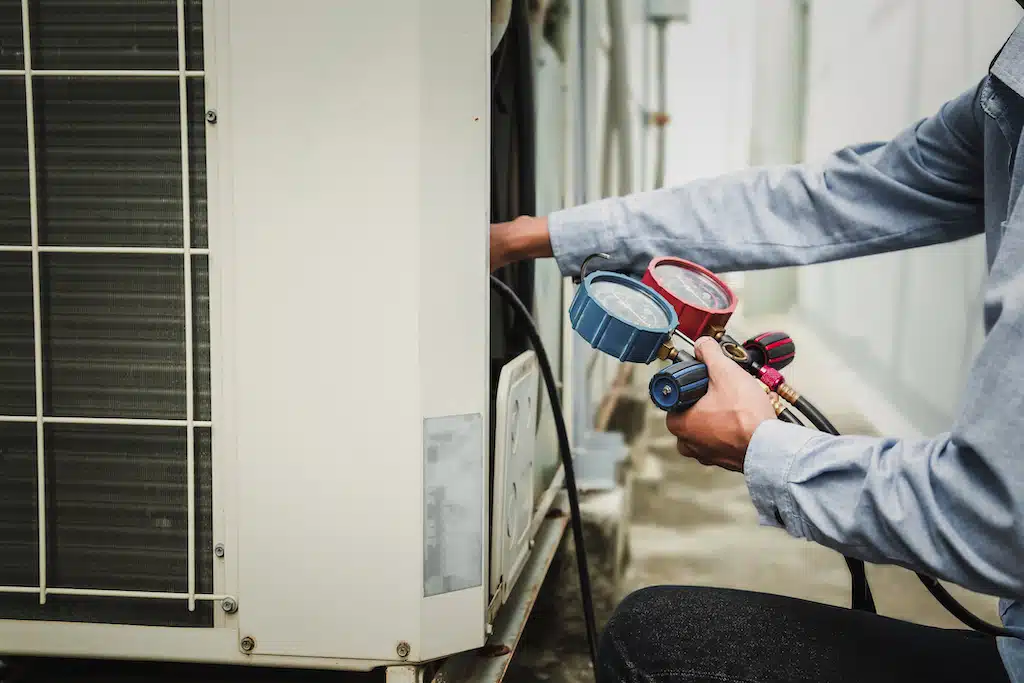
When the summer heat hits, a reliable air conditioning system is essential. But what happens when your trusty AC starts to fail? It might be time for an air conditioning system replacement. This guide will walk you through everything you need to know, from recognizing the signs of a failing system to choosing the right replacement.
Recognizing the Signs: When to Replace Your AC
Knowing when to replace your AC can save you money and keep your home comfortable. Here are some key indicators:
- Age of the Unit: Most air conditioners have a lifespan of 10-15 years. If your unit is older than that, it's likely nearing the end of its life.
- Frequent Repairs: If you're constantly calling technicians for repairs, it might be more cost-effective to replace the unit.
- Increased Energy Bills: An inefficient AC unit will consume more energy, leading to higher bills.
- Uneven Cooling: If some rooms are cooler than others, your AC might not be functioning properly.
- Strange Noises or Smells: Unusual sounds or odors can indicate serious problems.
- Reduced Airflow: If the air coming from your vents is weak, it could be a sign of a failing system.
Choosing the Right Replacement AC System
Selecting the right replacement involves considering several factors. Here's a breakdown:
1. Size and Capacity

The size of your AC unit is crucial. It's measured in British Thermal Units (BTUs). A unit that's too small won't cool your home effectively, while one that's too large will cycle on and off frequently, wasting energy. A professional HVAC technician can help you determine the appropriate size for your home. They will calculate the square footage of your house, and consider factors like window placement, insulation, and local climate. Getting the right size is absolutely critical for efficiency.
2. Energy Efficiency (SEER Rating)
The Seasonal Energy Efficiency Ratio (SEER) measures an AC unit's energy efficiency. A higher SEER rating means greater efficiency. Look for units with a SEER rating of at least 15. Higher SEER ratings can save you money on energy bills in the long run. Investing in a high SEER rating is a smart long term decision.
3. Type of System
There are several types of AC systems, including:
- Central Air Conditioning: This is the most common type, using ducts to distribute cool air throughout your home.
- Ductless Mini-Splits: These are ideal for homes without ductwork, providing zoned cooling.
- Heat Pumps: These can both heat and cool your home, offering year-round comfort.

4. Brand and Warranty
Choose a reputable brand with a solid warranty. A good warranty can protect you from unexpected repair costs. Research different brands and read customer reviews to find a reliable option. A long warranty is a sign that the manufacturer has confidence in their product.
The Replacement Process
Replacing an AC system involves several steps:
- Consultation and Assessment: A technician will assess your home and recommend the right system.
- Removal of the Old Unit: The old AC unit will be safely removed and disposed of.
- Installation of the New Unit: The new unit will be installed and connected to your home's electrical and ductwork systems.
- Testing and Calibration: The system will be tested to ensure it's functioning properly.
- Explanation and Training: The technician will explain how to operate and maintain your new AC system.

Maintenance Tips for Your New AC System
To ensure your new AC system lasts, follow these maintenance tips:
- Regularly Change Air Filters: Clean or replace air filters every 1-3 months.
- Schedule Annual Maintenance: Have a professional technician inspect and tune up your system annually.
- Keep the Outdoor Unit Clean: Remove debris and vegetation from around the outdoor unit.
- Check for Leaks: Regularly inspect the system for refrigerant leaks.
Conclusion
An air conditioning system replacement is a significant investment, but it can provide years of comfort and energy savings. By understanding the signs of a failing system and choosing the right replacement, you can ensure your home stays cool and comfortable all summer long. Remember to consult with a qualified HVAC technician to get the best advice and service. Investing in a quality installation and maintenance program will save you money and headaches in the long run. Don't wait until your AC completely fails. Get it replaced, and enjoy the comfort!
No comments:
Post a Comment
Note: Only a member of this blog may post a comment.